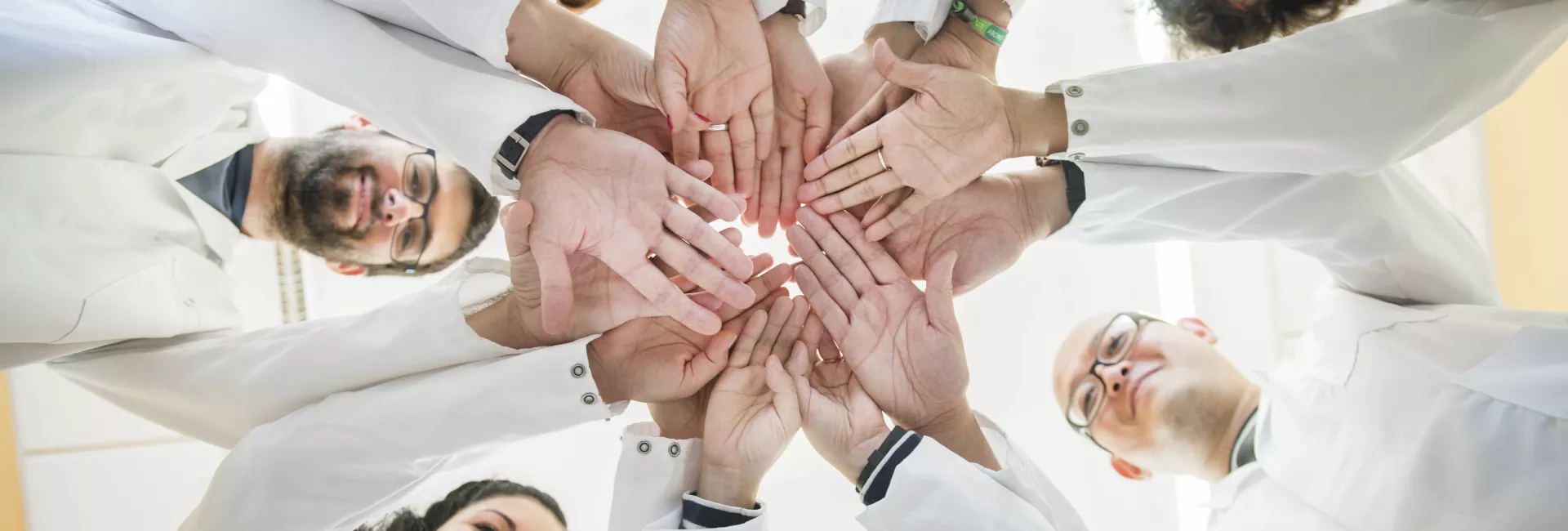Com a part de la nostra missió de promoure una recerca excel·lent en un entorn multidisciplinari, adoptem el compromís de formar científics i maximitzar l’impacte de la nostra ciència en la societat.
Coordinada per l’Oficina Acadèmica, amb la col·laboració d’altres departaments, la formació complementària se centra en els nostres investigadors doctorals i postdoctorals. Tanmateix, també s’implementen activitats de formació a tota la comunitat.
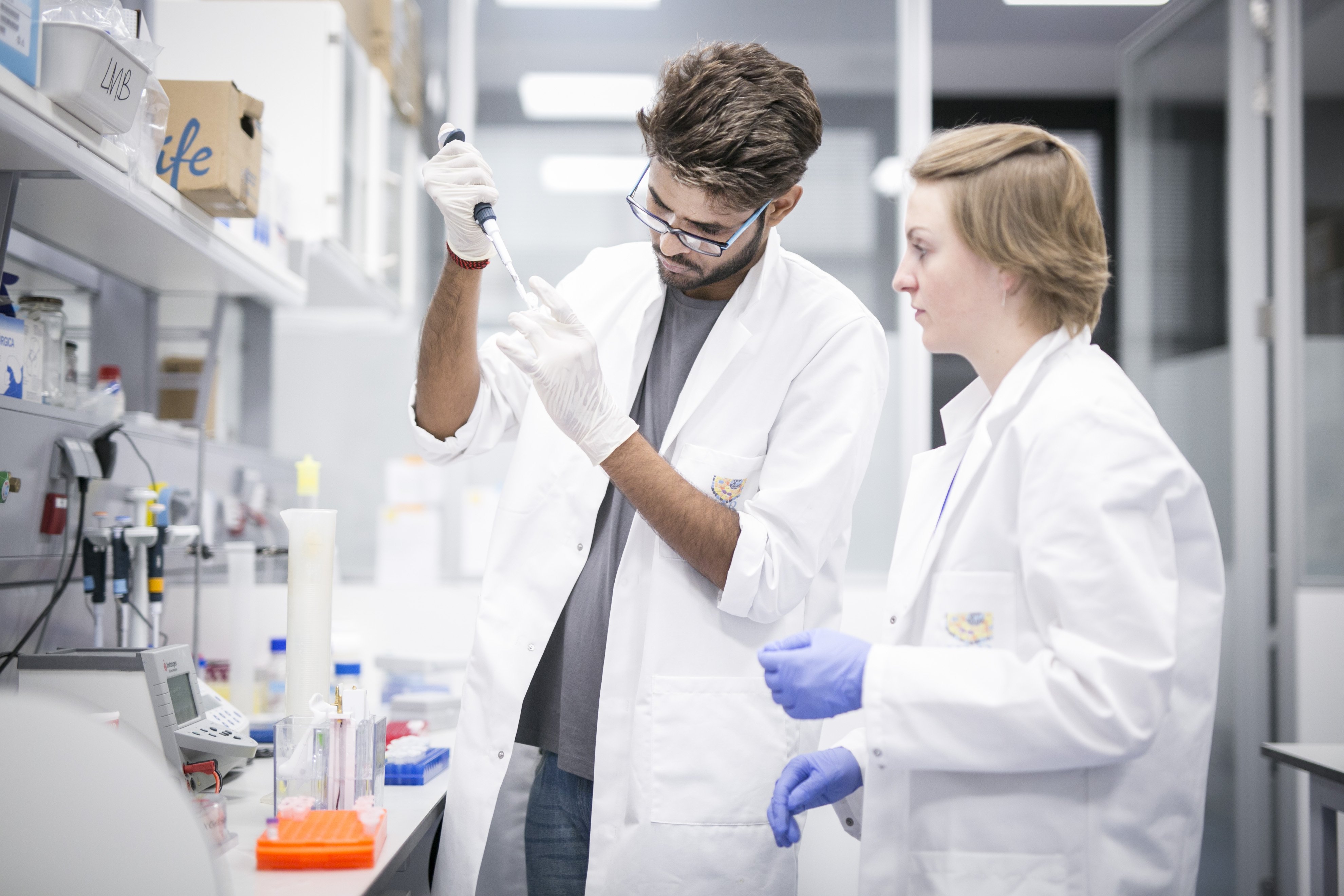
Activitats formatives
Oferim una àmplia gamma d’activitats de formació periòdiques (cursos i tallers) més enllà del laboratori que busquen desenvolupar i enfortir les competències bàsiques complementàries necessàries per a una carrera investigadora reeixida. El nostre programa de formació tracta principalment d’habilitats transferibles, però també inclou cursos més tècnics. Les activitats formatives es divideixen en les categories següents:
1. Desenvolupament professional
Tallers per millorar els coneixements, les habilitats i l’experiència dels investigadors, que els permetran aprofitar la seva ciència i obrir oportunitats professionals més enllà del món acadèmic.
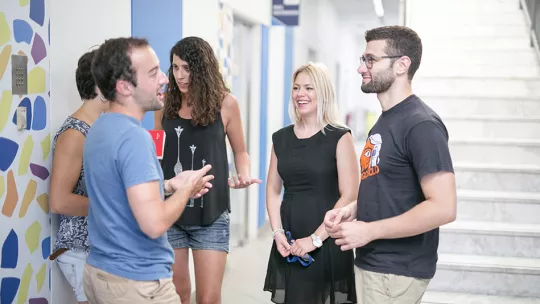
2. Innovació
El Departament d’Innovació de l’IRB Barcelona participa activament en el disseny d’activitats de formació relacionades amb la innovació (ja sigui impartint-les o facilitant el contacte amb experts). La formació està dissenyada per millorar un ampli ventall d’aptituds tant tècniques com interpersonals relacionades amb l’emprenedoria i el desenvolupament empresarial.
Aquesta secció inclou tallers i activitats de formació, que es divideixen en quatre categories: transferència de tecnologia, emprenedoria, proposta de valor i innovació.
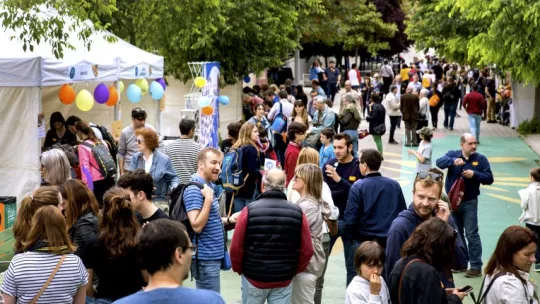
3. Comunicació
Els tallers sobre habilitats comunicatives tenen com a objectiu ajudar els investigadors a millorar la seva comunicació oral/escrita no només quan s’adrecen a un públic científic, sinó també al públic en general.
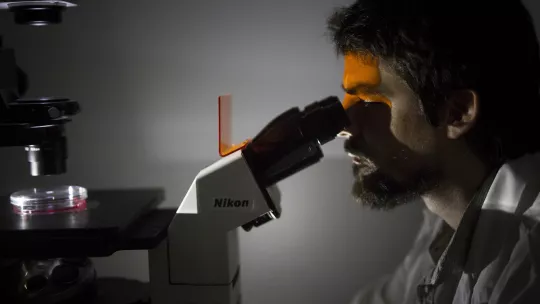
4. Formació cientificotècnica
Els tallers d’habilitats tècniques i científiques pretenen millorar les habilitats i els coneixements dels investigadors respecte a tècniques específiques, coneixements informàtics, etc.
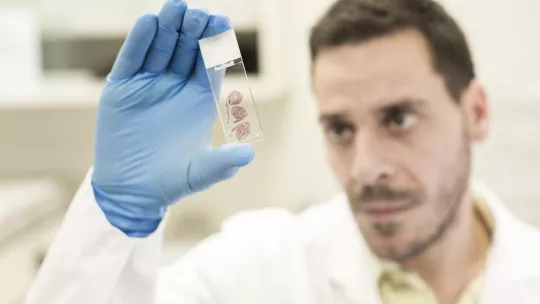
5. Desenvolupament professional personal
Cada investigador doctoral està supervisat per un comitè assessor de tesi (TAC), format per tres membres. El TAC no només pretén tutelar, supervisar i orientar l’investigador en tots els aspectes relacionats amb la tesi i el desenvolupament professional, sinó també atendre les preocupacions individuals que puguin sorgir.
A més, seguint els principis de la Carta Europea de l’Investigador, des del 2020 l’IRB Barcelona està implementant un conjunt de mesures per reforçar el desenvolupament professional de manera personalitzada. En aquest sentit, el 2019 diversos membres del Departament de Recursos Humans i Assumptes Acadèmics van rebre formació especialitzada com a “assessors professionals” i ara estan duent a terme plans de desenvolupament professional individualitzats per a investigadors doctorals, que els ajuden a identificar, adquirir o enfortir habilitats que serviran per millorar les seves perspectives laborals.
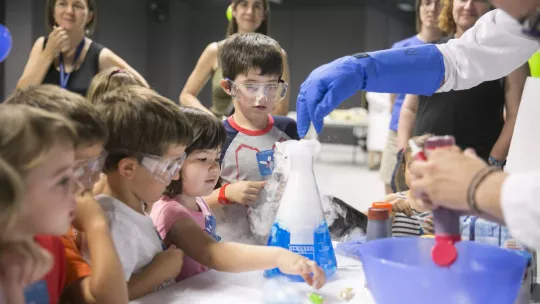
Programa d'activitats
In this webinar we will share methodologies and systems to be productive while maintaining a good balance between professional and personal needs.
The workshop will introduce participants to the field of experimental histopathology by reviewing the basic concepts of pathology (macroscopic and microscopic lesions/tissue evaluation), and the routine and specialised histological techniques used to obtain and process tissue samples. Notions of digital pathology, image acquisition and processing will be also covered.
Moreover, several examples of the applications of histopathological studies to biomedical research will be presented.
The session is addressed mainly to PhD researchers and users of the Histopathology Facility (previous registration requested).
The Advanced Digital Microscopy Core Facility is organising a 13-hours course on Advanced Optical and Fluorescence Microscopy, including Image Analysis.
The course will focus on basic technological and methodological topics related to Next-Generation Sequencing (NGS) technologies, to help you move forward with your genomics and transcriptomics projects.
This workshop led by Cecilia Gorriz (digital designer) will be focused on how to create and edit a scientific thesis with Adobe Indesign.
This workshop led by Cecilia Gorriz (digital designer) will be focused on how to create and edit scientific images with Adobe Photoshop and Adobe Illustrator.
The course “How to succeed in your PhD II”, which has been exclusively designed using VITAE’s framework in close collaboration with BIST offers a blend of experiential and reflective learning opportunities to support researchers in the middle stages of their PhD journey. Participants will be involved in 4 days of activities spread over 2 weeks relating to the key themes of Purpose, Bravery, Permission and Courage.
Scienseed is giving a comprehensive, hands-on training workshop to help you become proficient writers of scientific literature. In this workshop, you will:
Learn about the bigger picture of peer-to-peer communication Learn the basics of scientific argumentation in a research abstract Set the basis for writing a scientific articleThe workshop will provide a general description of the unit, an introduction to basic statistical concepts, an overview of research integrity topics and research data management, and hands-on experience of bioinformatic tools available on the web.
The “BIST- Leadership in Action” course for post-doctoral researchers, which has been exclusively designed using VITAE’s framework in close collaboration with BIST, provides the opportunity to focus on developing skills for successful self-management and development to progress in your professional career.
What can you do to make yourself a more effective doctoral researcher and get the most out of your PhD?
BIST centres by using the VITAE’s framework, have organised an interactive and intensive two-day course: “How to succeed in your PhD?”, which has been designed for you as first year doctoral researcher and will look at practical ways to increase your effectiveness and meet the challenges of your PhD.
This workshop will enable senior researchers to master the challenges related to the interpersonal aspects of doing science and to confidently fulfil their leadership role.
The programme will enable you to build effective relationships by boosting your communication skills and changing your mindset to positively impact your results.
The first session will concentrate on the well-established methods of classical transgenesis and gene-targeting via embryonic stem cells, and will include examples of how to produce a range of mutation types; for example over-expression models, gene knock-outs and point mutations, both constitutive and conditional.
The second session will address more recent developments, such as the use of gene-editing nucleases, their advantages and limitations, and novel methods of gene transfer.
The workshop will introduce participants to experimental histopathology by reviewing the basic concepts of pathology (macroscopic and microscopic lesions/tissue evaluation). Routine and specialized histological techniques used to obtain and process tissue samples, and notions of digital pathology, and image acquisition and processing will also be covered.
Moreover, several examples of the applications of histopathological studies to biomedical research will be presented.
The session is addressed mainly to PhD researchers and users of the Histopathology Core Facility.
Leadership in Action is a three day; activity based; residential training course. Working in the Montserrat Hotel and Training Center, will practice your leadership skills and gain an insight into leadership theory. Working with Postdoctoral staff from across the seven BIST centres, you will have the opportunity to gain insights from follow researchers across the disciplines and at different stages in their career. Your focus is to develop your leadership style so you are more impactful and effective in your workplace.
This workshop led by Cecilia Gorriz (digital designer) will be focused on how to create and edit a scientific thesis with Adobe Indesign.
This workshop led by Cecilia Gorriz (digital designer) will be focused on how to create and edit scientific images with Photoshop and Illustrator.
What can you do to make yourself a more effective doctoral researcher and get the most out of your PhD?
BIST centers by using the VITAE’s framework, have organized an interactive and intensive two-day course: “How to succeed in your PhD?”, which has been designed for you as first year doctoral researcher and will look at practical ways to increase your effectiveness and meet the challenges of your PhD.
